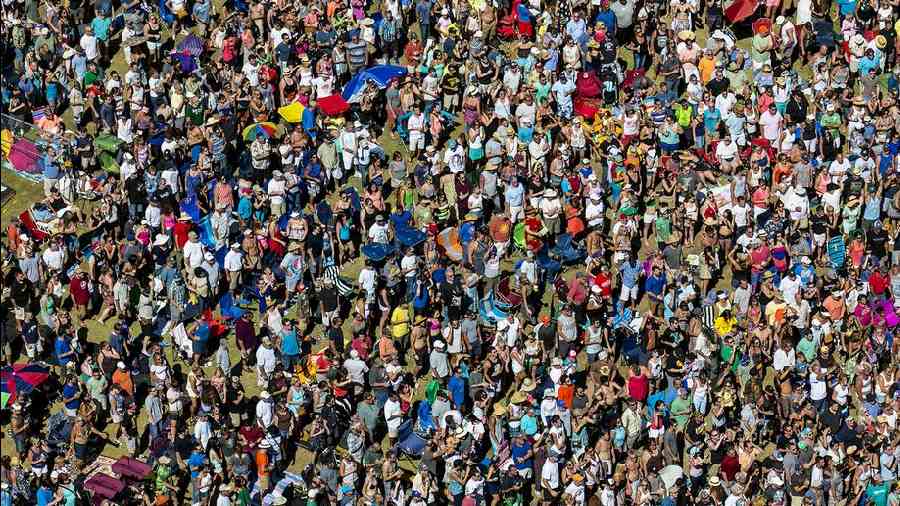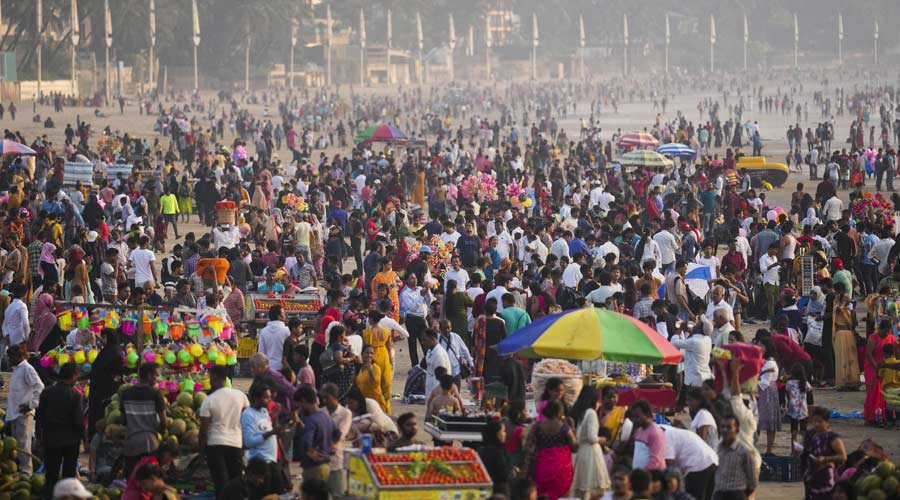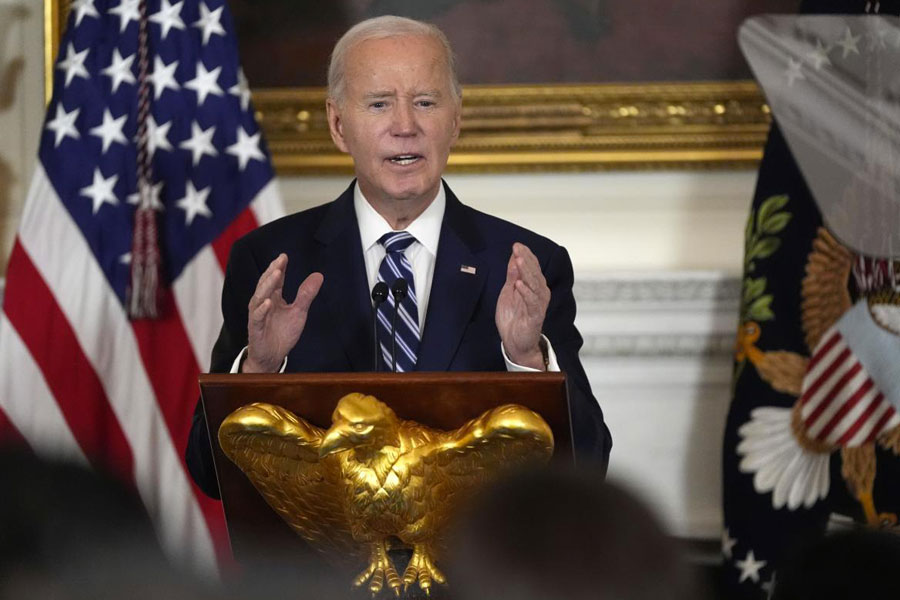As of November 15, the world's population has exceeded 8 billion people — a growth of another billion in just over a decade.
"The growth of the world population is a remarkable success story," said Sara Hertog, a population expert with the United Nations in New York, highlighting the 25-year increase in average global life expectancy since 1950 and declining birth rates that come with better access to reproductive services, family planning and more education opportunities for girls and women.
But this success has come at a cost, with a recent UN report pointing to population growth as one of the main sources of increased greenhouse gas emissions and ecological destruction. Every extra person adds to the strain on the planet's finite biological resources.
"Biodiversity loss, climate change, pollution, deforestation, water and food shortage — these are all exacerbated by our huge and ever-increasing numbers," said UK-based NGO Population Matters.
World's richest countries consume the most
Hertog told DW it's easy to pin these unsustainable consumption and production habits on exploding populations, especially in developing countries in the Global South. But she said it would be a "mistake" to expect that slowing population growth was the only solution.
"It's rising incomes that have been much more important than population growth in driving increased consumption and associated pollution," she said, pointing out that the world's richest countries, where population growth has slowed or reversed, are using the most resources per capita.
Poorer, developing countries in sub-Saharan Africa and parts of Asia, which are set to swell the most in the coming decades, are responsible for only a fraction of global emissions and resource use.
According to the Global Footprint Network, if everyone on the planet lived like a citizen of the United States we would need the resources of at least five Earths. Living like a citizen of a country like Nigeria, however, uses only 70% of the world's resources every year. For India, with its population of more than 1.3 billion, that figure is just 80%.
'We have been living beyond our means'
With population growth unavoidable — the UN has projected a global population of 9.7 billion by 2050, and as high as 11 billion by 2100 — sustainability experts have said we need to look elsewhere for solutions to the climate crisis.
Vanessa Perez-Cirera, the global economics director at the World Resources Institute, pointed out that the world actually has the necessary resources to feed a world population of 8 billion — and potentially billions more, if we rethink our current land use practises.
"We do have the resources, but it requires a huge effort in political economy and geopolitics to actually get the resources where they need to go," she said, speaking to DW from the COP27 summit in Egypt.
Sylvia Lorek, a professor of consumer economics at the University of Helsinki and chair of the Sustainable Europe Research Institute in Germany, said it all depends on how we share our resources. She argues that we must challenge our current consumption patterns, especially in the Global North.
"We have been living beyond our means for quite a while," said Lorek, adding that she expects we won't be able to sustain this way of life for much longer. And the more people there are, especially people hoping to achieve a comfortable Western lifestyle, the harder it is for the Earth to regenerate the biological resources — the flora, fauna, clean water and land— that we need to survive.
To meet the needs of the current world population, environmental NGO Global Footprint Network has estimated that we need an unsustainable 175% of the world's ecological resources every year.
Learning to 'live well with less'
Lorek stressed, however, that much of that overconsumption isn't voluntary — it's entrenched in how our societies are set up and the values we see promoted. In media, advertising, films and TV, "this mindset is triggered in people, that financial well-being is the thing," she said.
In recent years, Lorek and others in her field have been researching how people who already enjoy a relatively comfortable standard of living can learn to "live well with less," without giving up their quality of life. They've focused on three areas which are responsible for most of our emissions and resource consumption: how we eat, how we live and how we move.
Their recommendations will be familiar to anyone who has followed the climate debate: shifting to a more plant-based diet and reducing our consumption of animal-based products, and moving away from a reliance on air travel and individual motorized transportation. It also means restructuring our cities to build more efficient buildings and provide alternatives to single-family and single-person households, which consume more energy and are responsible for more emissions than communal living.
Lorek told DW, however, that we need more than convincing facts and figures to persuade policymakers and society at large to make the necessary changes to our lifestyle.
"Just following science would be 'ecological dictatorship' — we need a societal negotiation process" to work out this new equilibrium between rich and poor, she said. This would ensure that everyone had enough to reach the minimum quality of life threshold and stop others from using a disproportionate amount of the world's limited resources, which she said was "dangerous for social cohesion."
Perez-Cirera said not everyone would have to adopt the same lifestyle, but said it was important to show that "hopeful and attractive" living standards would be possible while curbing overconsumption.
"I do think that aspirations need to change," she said. "If we send the message that whatever we value now is going to be able to be enjoyed in the future, it's not necessarily a realistic message." Instead, she said, policymakers needed to see that economic growth was still possible, with a focus on quality, not quantity. "We should definitely show that a satisfactory life can be lived with fewer things."











